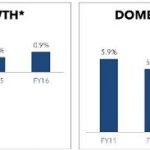The British Pound edged lower overnight as UK Prime Minister Theresa May reversed a preference for staying mum on the administration’s Brexit strategy, asking the House of Commons to vote on her plan to trigger Article 50 of the Lisbon Treaty and officially start departure negotiations by the end of March. She also committed to revealing the official road-map for the UK/EU divorce prior to that deadline.
Ms. May’s move puts MPs on the spot to back the outcome of July’s referendum or appear to ignore the electorate, which investors may have interpreted as upstaging moderates and increasing the risk of a “hard” exit (implying a loss of access to the EU single market). Still, the Commons vote is non-binding and a Supreme Court decision this week may yet require the harder step of formally passing Brexit legislation.
It was the Australian Dollar that underperformed however after third-quarter GDP data fell short of expectations, showing the economy shrank 0.5 percent. The year-on-year growth rate tumbled to 1.8 percent, the weakest since the nadir of the financial crisis 7 years ago. The Aussie dropped alongside front-end bond yields, hinting the markets are starting to envision rate cuts even as the RBA puts on a brave face.
The Japanese Yen likewise weakened as Asian stocks followed Wall Street higher, undercutting demand for the anti-risk currency. Financial shares appeared to be leading the way higher. A singular catalyst for the advance was not readily apparent and follow-through may be undermined if “hard Brexit” worries spill over into broader sentiment trends.
Looking ahead, a relatively lackluster data docket in European trading hours leaves markets without a standout trigger for directional momentum. Prepositioning ahead of tomorrow’s ECB rate decision may put the Euro at the forefront as investors prepare for what is expected to be an unveiling of significant changes to the central bank’s stimulus effort.













Leave A Comment